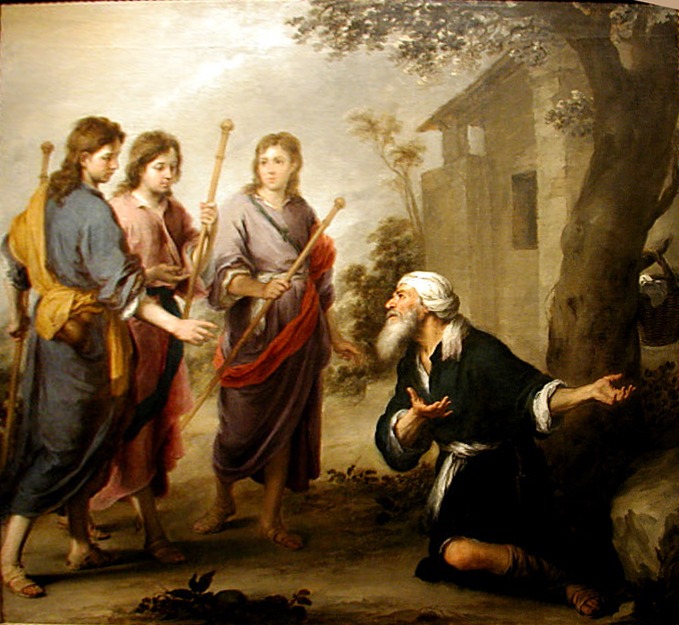Lessons of Sodom and Gomorrah
Hospitality


The story of the destruction of Sodom and Gomorrah begins with Abraham resting in his tent in the heat of the day. Looking out from his tent he saw three strangers approaching. He ran to meet them and instead of greeting them with hostility, demanding to know who they were and why they were there, he greeted them with hospitality. He offered them a comfortable place to rest, some water to wash their feet, and some bread to eat so that they could refresh themselves before traveling on.
When they accepted his offer of hospitality, Abraham had his wife bake bread for them and had one of his servants take the best calf from his heard, butcher, and cook it. Instead of offering them a light snack, he prepared a full meal for them. Although this was done with great haste it was not something that was done quickly. Being the host he was, Abraham would have never left his guests alone while they waited for this meal to be prepared. He would have entertained and conversed with them.
The Greeks have a word for this and an entire philosophy built around it. Philoxenia is an ancient Greek term that means "friend to a stranger," representing a deep cultural value of hospitality and generosity towards guests and travelers. It embodies the idea of welcoming and caring for strangers, reflecting a spirit of kindness that is still prevalent in modern Greek culture.
Philoxenia is not a one-way street. There are expectations on the host, but there are also expectations on the visitors as well. The first expectation is that the stranger accepts the hospitality being offered without demands. Abraham’s visitors needed nothing, yet they accepted his offer of a snack and then were patient with him as he prepared a meal for them. They accepted his offering and ate it without complaint. This calf isn’t cooked well enough for me. Is this milk pasteurized? Sorry, I only eat leavened bread.
When you have a visitor in your home do you offer them hospitality? Do you offer them something to drink or a snack to eat? When you are a visitor in another’s home do you accept their offer of hospitality or do you wave them off with a, "No thanks. I am good.” We have largely lost the concept of philoxenia in our culture. We no longer view the stranger as a visitor to be cared for, but as an outsider to be ignored, or worse, rejected.
As Christians we know that every person is created in the image and likeness of God and carries within them the dignity God bestowed upon them. Dignity is God’s thumbprint on the human soul. We are commanded to treat the stranger in the same way that Abraham treated his visitors – as if they were God himself. You never know. One day you may be given the opportunity to give hospitality to God and the level of hospitality you show will be returned to you.
This is more important today than it has been at any point of our country’s existence. The United States finds itself in a dilemma on what to do with approximately twenty-million people who entered the country illegally. Some want to round all of them up and throw them out. Others want to welcome them with open arms. The solution is somewhere in between. What we are called to do while those in power sort through the chaos is to provide hospitality and comfort to the strangers among us. We are not to look upon them with disdain or hate and we certainly should never use them as nothing more than pawns on a political chess board.
They are people with dignity who deserve our love and care as they search for a new home and a way forward. We can do that while respecting our laws. Let us restore a culture of philoxenia and become, once again, the country they thought they were fleeing to.
Evangelizing Worldwide
© 2025. All rights reserved.


Contact Me

